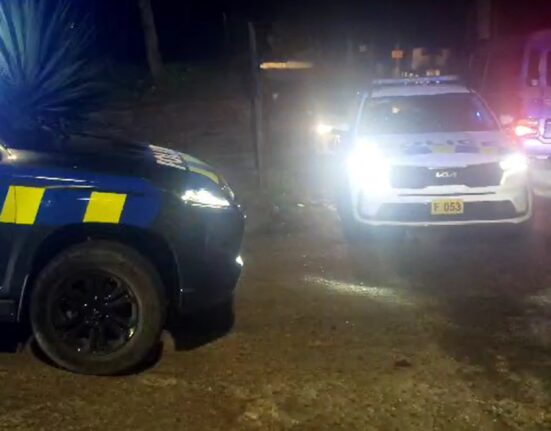With Jamaica’s murder rate once again on the rise, Chairman of Cool Corporation, Joe Issa is urging Police Commissioner Dr Carl Williams to consider adopting some of the strategies used by Canadian police to reduce crime in that North American country if considered helpful.Impressed by figures that show dramatic drops in crime levels in Canada over the years, Issa insists that at least some aspects of their plans be studied and then applied in Jamaicaif considered relevant.“What works in one jurisdiction might not necessarily work in another,” Issa admits.But he contends: “There might be aspects of the amazingly successful strategies that they have applied there, that we can adopt here in Jamaica. As President Obama said, in relation to the United States’ strategy against Cuba, if after 50 years the plan doesn’t work, it’s time to try something new. Our plans here in Jamaica clearly are not working as quickly as we would like, so we have nothing to lose studying the Canadiansiniatives if we have not already done so.”
According to the lead story in the Jamaica Observer on May 5, 2015,
“Police Lesson – Canadian cops reduce crimes with service, rather than force,” by Alphea Saunders,
http://www.jamaicaobserver.com/news/police-lesson_18881315the Canadian police have reduced the bitter divide that once existed between the police and the public in that country, by reducing the mistrust that usually sparks clashes between law enforcement and citizens in countries across the world.In the story, chief of the Winnipeg Police Service, Devon Clunis, is reported as saying that the most important first step was to change the mindset of both law enforcers and community members.According to the Jamaican-born Clunis: “The officers themselves were the ones driving some of those changes because they saw what was happening when they actually engaged the community. We certainly have to enforce the law, but more time and energy has to be spent on the prevention of crime, and to be the glue that holds the community together. That’s what we have challenged our organisation to be, and we are seeing very positive results around that.”
He said the approach is what had contributed to the declining crime rate across Canada.That same month, a reader of the Jamaica Gleaner newspaper, K-Natz Hutchinson, seemed to agree with this method of community engagement, in general, suggesting that the communication link between the police and citizens be strengthened.In response to a request by that newspaper on its Facebook page for readers to suggest to police commissioner Dr Carl Williams, solutions to the nation’s crime problems, Hutchinson wrote:“The easiest way to reassure the citizens of any country with the crime problems is communicating your plan of action for the reduction of crime,” the reader suggested to the commissioner.He continued: “Regular communication between yourself and the citizens will allow them to feel reassured that action is being taken regarding the crime problem and allow us to buy into your plan for crime reduction.”
http://www.jamaica-gleaner.com/article/lead-stories/201505
With the murder figure in Jamaica now beyond the 600 mark, higher than the previous year, Issa believes that taking an approach similar to that of the Canadians, could bear fruit in Jamaica and help if done on a wider scale than currently exists.In an interview, Issa, an astute businessman, was asked to comment on Jamaica’s current murder rate, which stakeholders in the business sector have long blamed as a key factor in the stymied growth of the nation’s economy.“Over the years we have tried numerous approaches, we have introduced strategy after strategy only to have them make an impact initially and then it’s back to square one. We need to take the iniatives that work, and magnify them,” Issa insists. Clunis attributed the declining crime rate across Canada, over the years, to this approach to engage rather than confront. It was the need to engrave this mindset into the police that led the Canadian police to be changed from a force to a service, said the Jamaican-born Winnipeg police chief.The homicide rate in Canada more than doubled between 1961 and 1975, when it reached its highest point, but has been declining then, according to
According to that website: “Homicide was a relatively rare event in Canada in 2013, representing less than 1% of all violent crime. In total, police reported 505 homicides in 2013, 38 fewer than the previous year. As a result, the national homicide rate declined to 1.44 per 100,000 population in 2013, marking an 8% decrease from the previous year and the lowest homicide rate recorded since 1966.”By contrast, Jamaica’s per capita murder rate is 37 per 100,000. In 2014, there were 1005 murders in Jamaica, 16% fewer than 2013 and lowest since 2003, according towww.country.eiu.com
“There is no obvious reason for the decline in the overall murder rate and no guarantee that murders will not rebound this year (there were 21 killigs in the first six days of 2015 alone,” the website informs.Apparently satisfied with the success of the plan in their country, the Canadian police extended the strategy of engagement of members of the public to Jamaica when 40 cops visited the island on humanitarian mission.While here, the cops assisted Missionaries of the Poor and Jessie Ripoll Primary School, according to the Jamaica Observer article “Jessie Rippoll Primary gets facelift,” by Kimmo Matthews, published May 5, 2015 athttp://www.jamaicaobserver.com/news/40-Canadian-cops-here-on-humanitarian-mission_18881342
“Clearly, the Canadians are doing something that might help us and it appears to be working, so it only makes sense that we try and adopt some of the strategies that they have employed if we as a nation so chooses,” Issa states.









